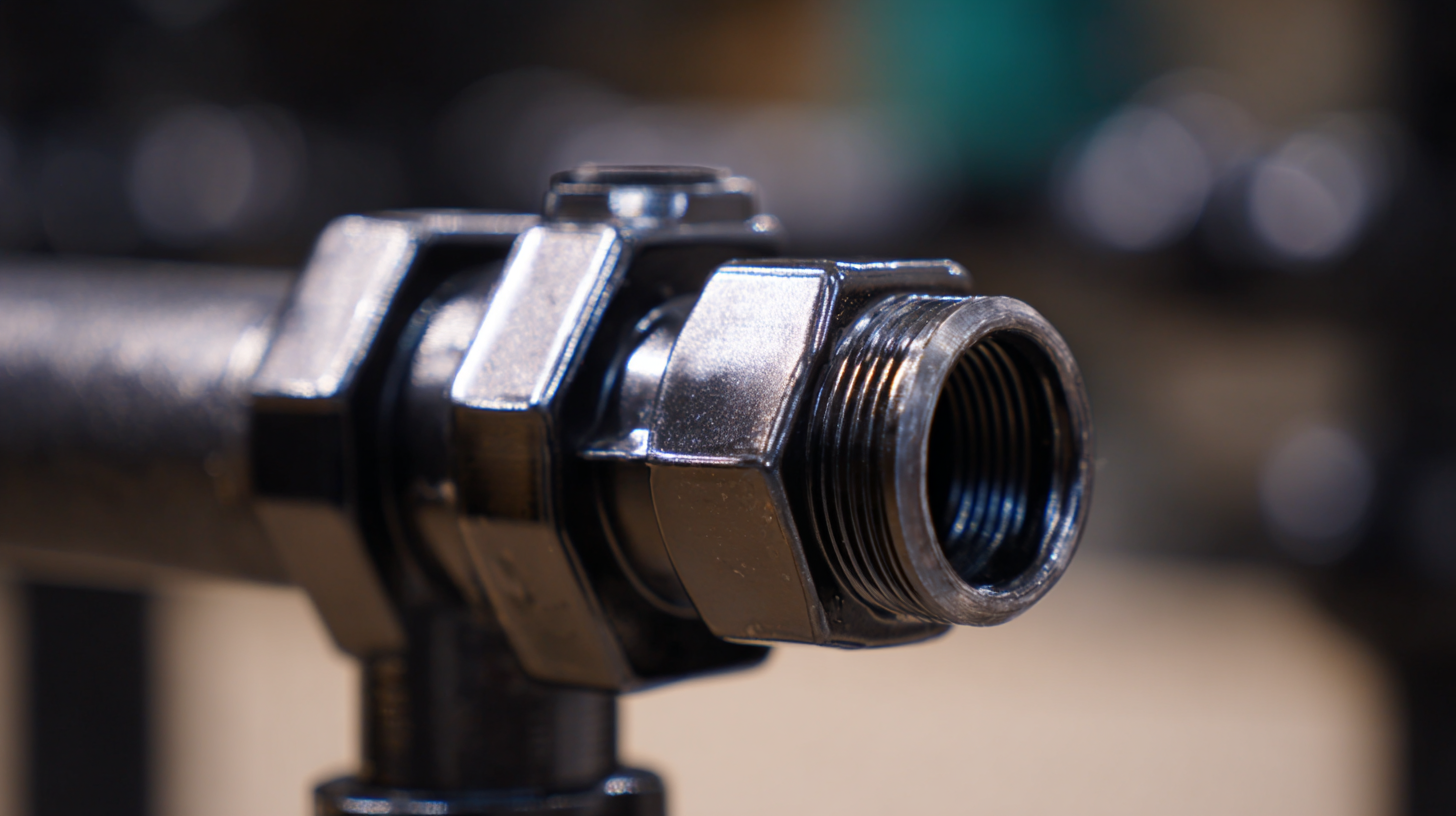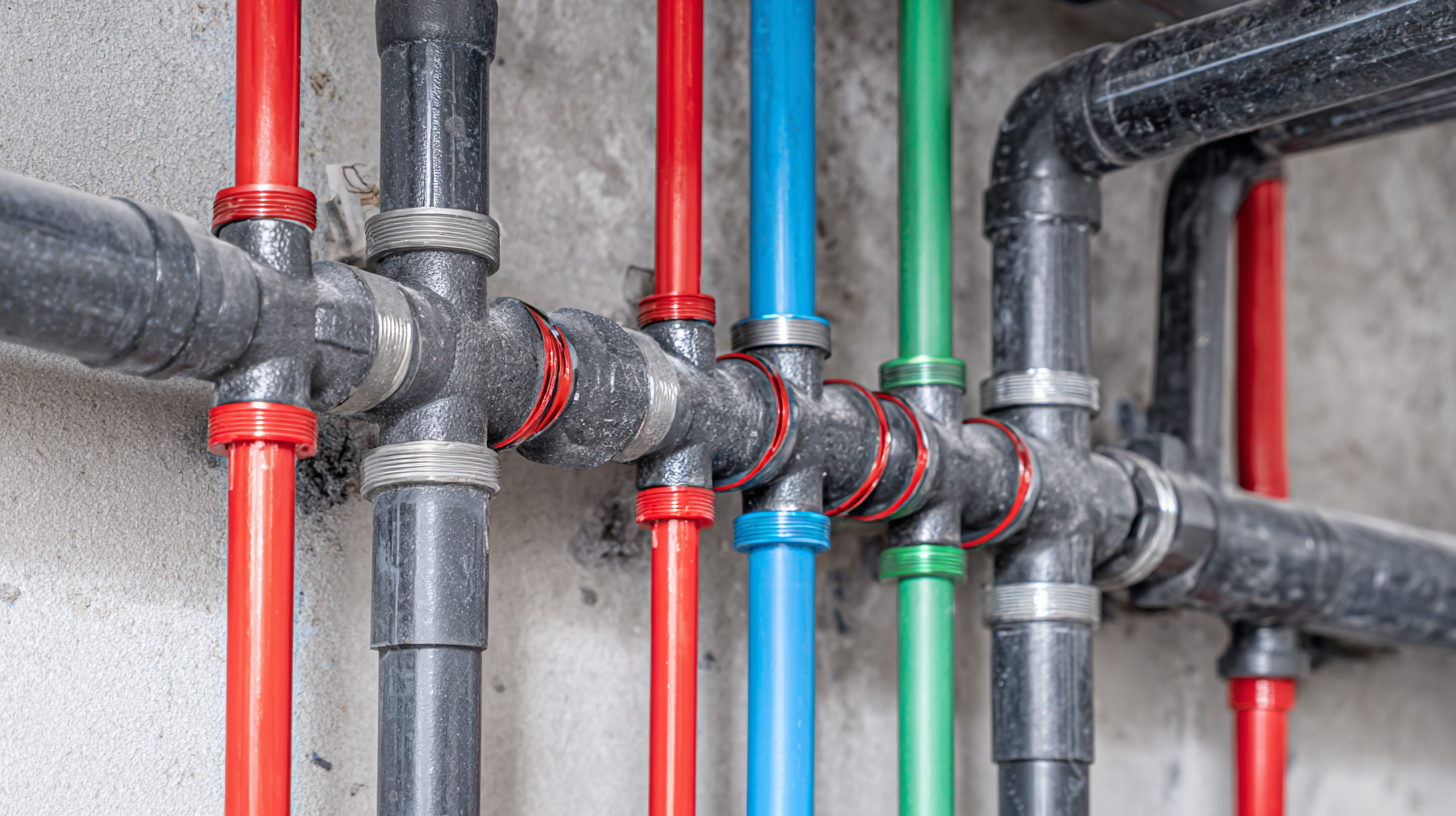Ensuring Excellence in Manufacturing Standards for Best Ppsu Pex Fittings
In the ever-evolving realm of plumbing solutions, the demand for high-quality materials has surged, particularly for Ppsu Pex Fittings, which have become a staple in modern construction and renovation projects.
According to a recent market analysis by Transparency Market Research, the global demand for PEX (cross-linked polyethylene) fittings is anticipated to grow substantially, projecting a compound annual growth rate (CAGR) of over 5% from 2021 to 2028. This growth is driven by the increasing preference for sustainable and durable plumbing solutions.
However, the success of any plumbing project hinges on selecting the right supplier who adheres to stringent manufacturing standards. Establishing a checklist for evaluating potential vendors is essential to ensure the quality and reliability of Ppsu Pex Fittings, ultimately contributing to the long-term integrity of plumbing systems.

In this blog, we will explore how to find the best suppliers and provide a comprehensive checklist to help professionals secure excellence in their manufacturing standards.
Key Manufacturing Standards for High-Quality PPSU PEX Fittings
The manufacturing of PPSU PEX fittings requires adherence to stringent standards to ensure quality and performance. According to a report by the Global PEX Industry Study, the global demand for PEX fittings is projected to reach USD 7 billion by 2025, driven primarily by their superior thermal resistance and durability compared to traditional materials. This emphasizes the need for manufacturers to implement high-quality standards during production to meet market expectations.
Key manufacturing standards such as ASTM F876 and ASTM F877 play a crucial role in the production of PPSU PEX fittings. These standards establish guidelines for the material and performance requirements of cross-linked polyethylene piping systems. Adhering to these specifications ensures that fittings not only resist chemical corrosion but also maintain structural integrity under high pressure and temperatures, as evidenced by testing methods established by the International Association of Plumbing and Mechanical Officials (IAPMO). Comprehensive quality control processes must also be in place to monitor the manufacturing process, ensuring that each fitting complies with these essential industry standards.
Ensuring Excellence in Manufacturing Standards for Best Ppsu Pex Fittings
| Standard | Description | Importance |
|---|---|---|
| ISO 9001 | Quality management systems - Requirements | Ensures consistent quality and customer satisfaction. |
| ASTM F877 | Standard Specification for PEX Tubing | Provides performance and durability specifications. |
| NSF/ANSI 61 | Drinking Water System Components - Health Effects | Ensures safety of PEX fittings in drinking water applications. |
| ASTM F1960 | Standard Specification for Cold Expansion Fittings | Aimed at ensuring secure connections for long-term use. |
| ISO 14001 | Environmental Management Systems | Helps organizations improve their environmental performance. |
Essential Tips for Selecting the Right Material in PPSU PEX Production
When selecting the right material for PPSU PEX production, it’s crucial to consider properties that lend to durability and performance.
PPSU, or polysulfone, is renowned for its heat resistance and exceptional strength, making it ideal for plumbing applications, where temperatures can fluctuate significantly.
According to industry reports, PPSU fittings can withstand temperatures up to 180°C and maintain their structural integrity even under repeated thermal cycling.
Tip 1: Evaluate the chemical compatibility of PPSU with various liquids.
PPSU exhibits outstanding resistance to a wide range of chemicals, which is essential in preventing degradation that can lead to leaks or failures in fittings.
In selecting PPSU for PEX applications, it’s important to consider its certifications and compliance with industry standards.
Reports indicate that PPSU meets rigorous testing benchmarks set by organizations such as ASTM and NSF, ensuring safety and reliability in potable water systems.
Tip 2: Prioritize suppliers who provide transparent data on their production standards and materials used.
This not only enhances quality assurance but also supports sustainable practices within the manufacturing process, aligning with increasing industry demands for eco-friendly solutions.
Quality Control Measures to Ensure Excellence in PPSU PEX Fittings
Quality control is paramount when it comes to manufacturing PPSU PEX fittings, as these components play a critical role in plumbing systems. According to a recent industry report by the International Plumbing and Mechanical Services Association, about 30% of plumbing failures are attributed to inferior fittings. Ensuring excellence in manufacturing standards involves rigorous testing and certification processes. For instance, the American National Standards Institute (ANSI) and the Plastics Pipe Institute (PPI) have established stringent guidelines that all manufacturers must adhere to, focusing on durability, leak resistance, and chemical compatibility.
To maintain high quality in PPSU PEX fittings, implementing a comprehensive quality control program is essential. This can include techniques such as statistical process control (SPC) and regular audits of production lines to identify potential issues before they escalate. Additionally, it's crucial to source raw materials from reputable suppliers and continuously monitor their quality.
**Tips:** To further enhance quality, manufacturers should invest in advanced technologies such as automated inspection systems, which can detect defects in real-time. Training staff in best practices for assembly and quality checks will also foster an environment of excellence. Regularly reviewing and adapting quality control measures in response to industry developments can lead to continuous improvements and exceptional product reliability.

Innovative Techniques for Enhancing Durability in PPSU PEX Products
In the realm of plumbing solutions, using high-quality materials is paramount, especially when it comes to PPSU (Polyphenylsulfone) PEX fittings. These components are gaining traction in modern manufacturing due to their exceptional durability and resistance to harsh environments. Innovative techniques are continuously being developed to further enhance the longevity of these products, ensuring they meet the high standards required in both residential and industrial applications.
One cutting-edge method involves advanced molecular structuring, which reinforces the intrinsic properties of PPSU. This technique not only improves resistance to thermal degradation but also enhances mechanical strength, allowing fittings to endure extreme temperatures and pressure fluctuations. Furthermore, incorporating specialized additives during the manufacturing process can create a more robust product that can withstand the corrosive nature of certain fluids, prolonging the lifecycle of the fittings.
Additionally, manufacturers are turning to holistic approaches that include rigorous testing protocols and quality control measures throughout the production process. By simulating various environmental conditions, they can better predict how PPSU PEX fittings will perform in real-world applications. This proactive strategy ensures that these fittings are not only compliant with industry standards but also exceed customer expectations in durability and reliability.

The Role of Certifications in Upholding Manufacturing Standards for PPSU PEX Fittings
The role of certifications in upholding manufacturing standards for PPSU PEX fittings cannot be overstated, as they serve as a benchmark for quality and safety in the plumbing industry. According to a recent report by the Global Plastic Pipe Market research, the performance of PEX piping systems, especially those made from PPSU (polyphenylsulfone), hinges on rigorous manufacturing protocols and standards. Certifications such as NSF/ANSI 61 ensure that the fittings are not only safe for drinking water but also resistant to the thermal and chemical challenges that plumbing systems face.
Moreover, certifications assure consumers that PPSU PEX fittings meet stringent industry benchmarks. For instance, the ISO 9001 certification, which focuses on quality management systems, indicates that manufacturers are committed to continuous improvement and customer satisfaction. Data from the American National Standards Institute highlights that products adhering to recognized certifications are significantly less likely to experience failure under pressure, extending the lifespan of plumbing systems and reducing maintenance costs. By prioritizing certified manufacturing processes, companies can enhance the reliability and overall performance of PPSU PEX fittings, ensuring they meet the evolving demands of modern construction and renovation projects.
